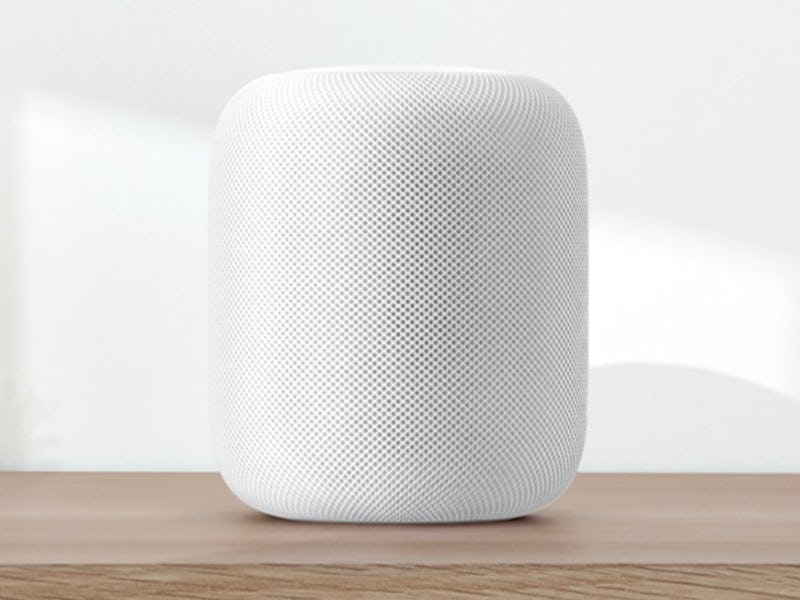Apple HomePod May Be the Dumbest of A.I. Speakers, at First
Amazon Echo and Google Home may have the edge.

The HomePod, Apple’s competitor to the Amazon Echo and Google Home announced Monday, may be kind of dumb. The $349 smart speaker promises superior sound to the $180 Echo and $130 Home, with a dazzling array of woofers and tweeters designed to, in Apple’s words, “rock the house.” But interviews after the speaker’s announcement suggest its Siri voice assistant may pale in comparison to Alexa and Google’s assistant.
“You’re very focused on how this could reinvent music in a home,” Emily Chang told Apple CEO Tim Cook in an interview for Bloomberg Technology. “What about these other things? Will I be able to make a phone call, call a car, order groceries?
“There’s a lot of things you can do with it,” Cook said. “One of the advantages that we have is that there’s a lot of things that Siri knows how to do from the phone, and so we’ll start with a patch of those as Phil showed today during the keynote, and then you can bet that there’s a nice follow activity there as well.”
It’s true, on the sound front the HomePod looks impressive compared to its competitors. It has a seven beam-forming tweeter array with individual drivers, precision acoustic horns, and an Apple-designed woofer with automatic bass equalizer. The Amazon Echo, deemed by reviewers as having superior sound quality to the Google Home, has just a single tweeter and subwoofer.
But on the artificial intelligence front, the list of commands looks rather slim compared to competitors. Here’s the slide Apple displayed during the conference:
Siri's commands are a bit slim.
Amazon and Google offer similar lists of commands, but with Skills for Alexa and Actions fr Home, they can expand out further to carry out the sort of tasks Chang listed. For example, you can ask Google Home to “talk to Dominos and get my easy order” or you can ask Alexa to “ask Uber to request a ride.” Without any semblance of a HomePod app store, the list of commands may look rather paltry sooner rather than later.
For now, it also seems that the only music streaming service the HomePod will support is Apple Music. The Echo and Home both support their company’s homegrown streaming services, but they also offer Spotify, Pandora, iHeartRadio, TuneIn and many others.
The two companies also sync the data from their voice assistants into the cloud, offering a unified experience across devices. Google Home, for example, can control Chromecast dongles with commands like “pause this show.”
Apple just unveiled a similar level of integration for its new iOS 11 and macOS High Sierra releases, where learned user preferences sync across devices, but it’s unclear at this stage whether the HomePod will take these preferences on board.
There is potential for future expansion. HomePod contains the Apple A8 chip, the same processor used in the iPhone 6. That device is receiving the iOS 11 update, which contains the more advanced Siri and deep learning tools. So we know that HomePod could be capable of more advanced commands in the future, but for now, you’re probably better off with an Echo or Home.